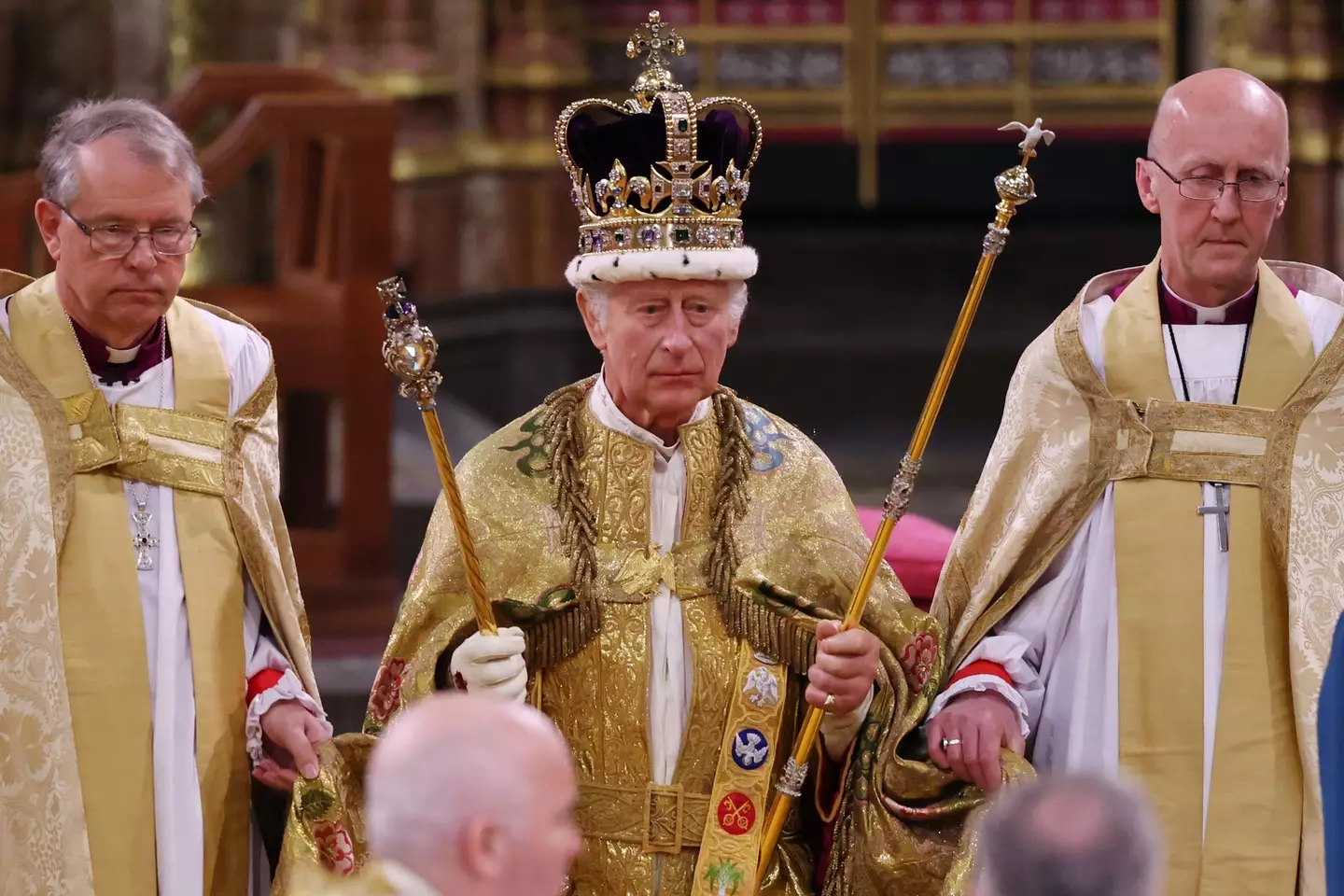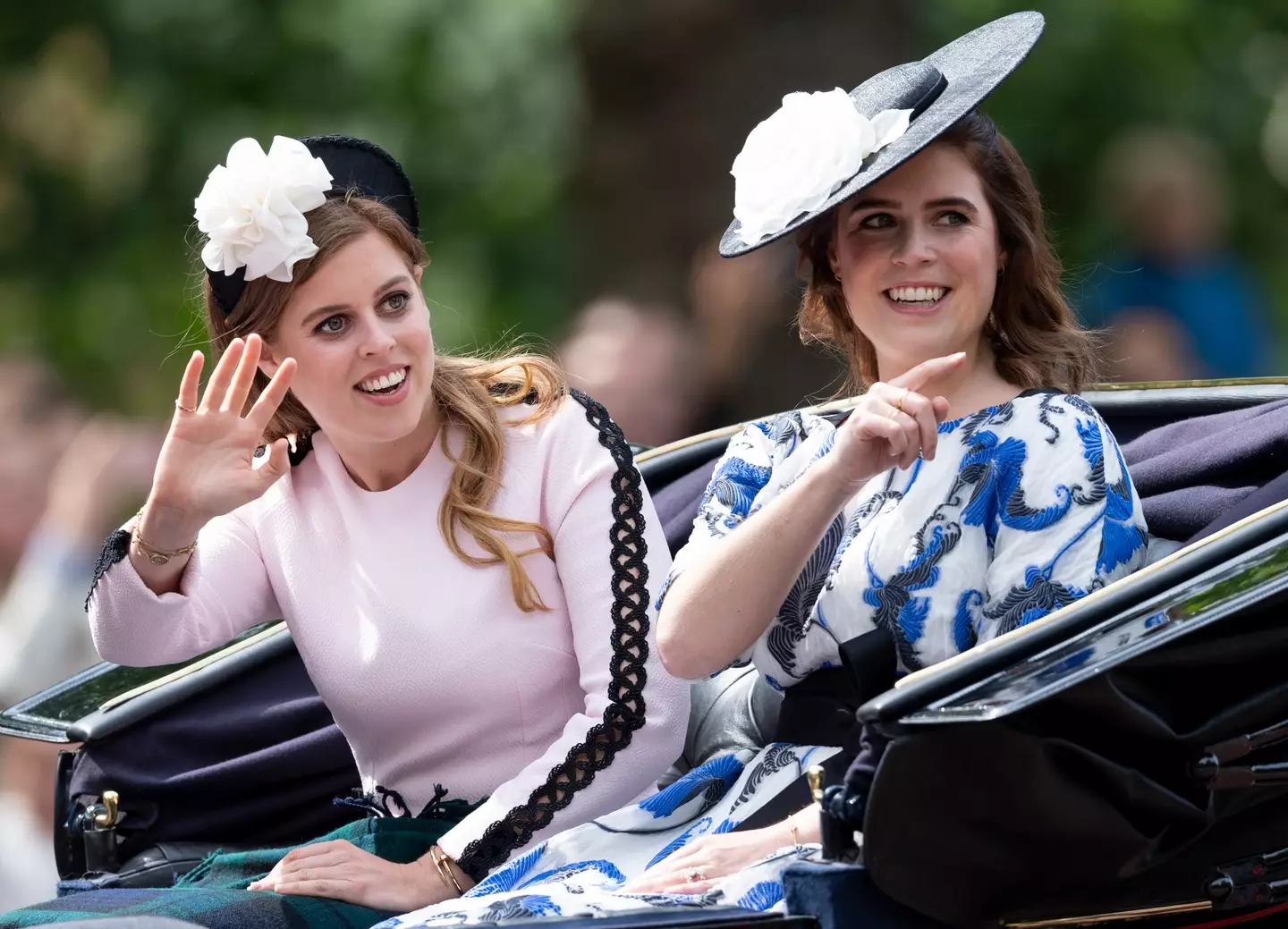
Despite Buckingham Palace officials announcing last night that Prince Andrew will have his 'prince' title removed, it has since emerged that the father-of-two could still take to the throne as King.
The 65-year-old's controversial princedom was stripped by his brother, King Charles III, on Thursday (30 Oct), in light of damning revelations over Andrew's relationship with Jeffrey Epstein.
His first set of titles were taken away in 2022 - three years after Virginia Giuffre claimed she'd had sex with the Prince on three separate occasions as a minor, having first been trafficked by Epstein.
At the time, despite reaching an out-of-court settlement with his alleged victim of an undisclosed sum in civil court, the father-of-two stepped down as a working royal, and surrendered his use of his 'HRH', 'Earl of Inverness', and 'Baron Killyleagh' titles.
Advert

And he has also lost his 'Duke of York' title.
Giuffre tragically went on to take her own life earlier this year, ahead of the posthumous release of her gut-wrenching memoir last week - in which she describes a number of her alleged sexual interactions with Andrew.
Andrew's continuous affiliation with Epstein - who committed suicide in 2019 whilst awaiting trial - saw his princedom removed this week, as well as his lease on Royal Lodge terminated.
"Formal notice has now been served to surrender the lease, and he will move to alternative private accommodation," the Palace statement continued. "These censures are deemed necessary, notwithstanding the fact that he continues to deny the allegations against him."
In response, Giuffre's brother Sky Roberts described the ruling as a victory that's 'unprecedented in history', adding of his sister: "She is celebrating from the heavens now saying 'I did it'. She'd be so proud. He's just Andrew."

What many spectators of the sexual scandal had seemingly failed to realise, however, is that the removal of Andrew's princedom doesn't change his position with regards to the British throne.
Despite henceforth being known as 'Andrew Mountbatten Windsor', he remains eighth in line to become King, with his daughters Beatrice and Eugenie following in ninth and twelfth respectively.
It is widely believed that the recent removal of Andrew's princely title does not automatically change his place in the line of succession, with royal experts not predicting any further legal amendments to the process.
This is set by law (e.g., Succession to the Crown Act 2013) and deals with factors like birth, legitimacy, religion, and marriage restrictions.
Therefore, given how 'low down' Andrew is, as well as the fact that neither he nor his daughters currently serve as working royals, it's unlikely his position will change in the near future.

Royal commentator Victoria Murphy previously predicted of the two Princesses: "As far as Beatrice and Eugenie go, I think there's an appreciation of the fact that this scandal doesn't involve them, and it's not fair for it to impact them directly in the independent lives they are carving out for themselves."
Their positions are also somewhat protected by King George V's Letters Patent of 1917, which rules that the offspring of a sovereign, and the offspring of a sovereign's son, be afforded their titles at birth.
Topics: Prince Andrew, Royal Family, UK News, US News, Jeffrey Epstein, King Charles III, Crime, Virginia Giuffre